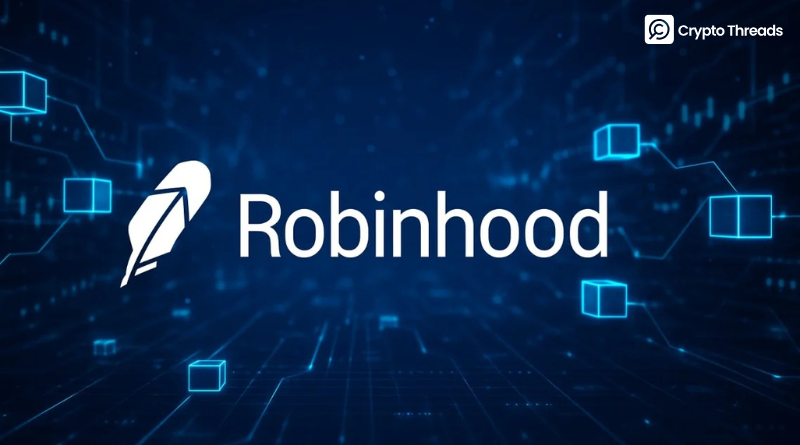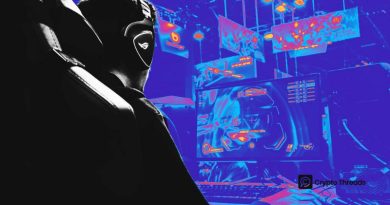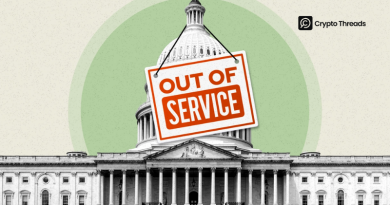Private Firms Eye Robinhood’s EU Tokenized Equity Platform
Key Takeaways
- Robinhood receives numerous requests from private companies seeking to tokenize shares following EU platform launch
- Platform currently offers over 200 tokenized US equities, trading 5 days per week
- Long-term goal is to bring thousands of private companies onto the platform
- Bank of Lithuania requests clarification on token structure, Robinhood confident about compliance
- Tokenization market is growing rapidly with multiple new initiatives
Robinhood is witnessing a surge of interest from private companies eager to tokenize their shares, following the recent launch of its tokenized stock platform in the European Union.
In an interview, CEO Vlad Tenev said the company has received a wave of inquiries from private firms seeking to make their equity available to retail investors through blockchain-based tokens on the platform.
“Since our announcement, I’ve had a deluge of inquiries from private companies that actually want to access retail to have their shares tokenized and be a part of this revolution,” he said.
Current Platform and Future Vision
Open five days a week and exclusively available in the EU, the platform lets you access over 200 tokenized US equities. Plus, there’s a cool giveaway of non-tradable tokens that represent shares in top private companies like OpenAI and SpaceX.
Tenev emphasized that Robinhood’s long-term ambition is to onboard thousands of private companies. “We believe this is a huge opportunity to resolve one of the biggest inequities in capital markets, which is the fact that you have these massive companies that are staying private longer,” he said.
Regulatory Scrutiny
However, the platform’s launch has drawn regulatory attention. The Bank of Lithuania, which oversees Robinhood’s EU operations, has requested further clarification regarding the token structure. Tenev said the company welcomes the review and remains confident in its compliance approach.
Source: European Securities and Markets Authority
“They want to make sure that everything is proper because it’s a new innovative offering. We’re confident. We think that these are not only important, but they’ll withstand the highest form of scrutiny,” he said.
The tokens are technically classified as derivatives under the EU’s Markets in Crypto-Assets Regulation (MiCA) and Markets in Financial Instruments Directive (MiFID). Each token is backed by an equivalent underlying asset held by US brokers, with new tokens minted or burned based on user activity.
Global Expansion Plans
Tenev confirmed that discussions with regulators in the US and UK are already underway, although the platform is not yet available in either market. He noted that the US Securities and Exchange Commission (SEC) could approve tokenization under current regulations, without requiring new legislation.
“The US shouldn’t be far behind. The opportunity is too large to ignore. Not just for retail but also institutional. And I think they’re keen. They’re having tokenization roundtables at the SEC, which we’ve been a part of,” he said.
According to Galaxy Digital, Robinhood’s move to tokenize stocks represents a shift away from traditional market rails by bringing assets on-chain—potentially disrupting the concentrated liquidity models that have long benefited major financial exchanges like the NYSE.
Tokenization Market Remains Red-Hot
The tokenization of real-world assets on blockchain infrastructure is gaining momentum across both private and institutional sectors. Robinhood’s recent move in this space positions it strategically, potentially giving it an early lead in the EU, especially if the US and UK follow with regulatory approvals.
This trend is exemplified by recent developments: Nasdaq-listed BioSig Technologies secured up to $1.1 billion from an undisclosed institutional investor to tokenize commodities markets. This funding package includes $100 million in senior secured convertible debentures and a $1 billion equity line of credit. Concurrently, the QCD Money Market Fund (QCDT), a collaboration between DMZ Finance and QNB, gained approval from the Dubai Financial Services Authority (DFSA). This makes QCDT the first tokenized money market fund within the Dubai International Financial Centre (DIFC).



